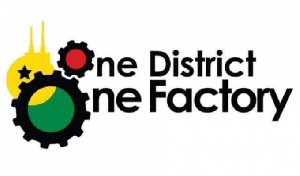Minister for Trade and Industry, Alan Kyeremateng, has disclosed that government has received over 350 business proposals from investors, so far, who want to be part of the 1 district, 1 factory initiative.
“It started very well,” the minister told the B&FT in an interview. “Right now, we have over 350 business promoters that have already submitted their proposals to be part of the initiative, that in itself shows that the initiative itself has attraction and people are interested in it.
Some 285 out of the lot, he said, have been selected for government support and are expected to work with government towards the establishment of various enterprises in the districts.
Ten factories across the country, he said, are expected to be commissioned as part of the “One District, One Factory” policy, before the turn of the year.
The factories, predominantly manufacturing plants, are expected to create at least 5000 jobs across the country.
The programme is essentially a public-private partnership for ensuring the nationwide spread of industrialisation in all 216 districts of Ghana.
The Trade and Industry Minister also maintained that government’s commitment to attracting private participation in industrial growth is critical for its overall agenda of job creation and economic transformation.
Government’s contribution will be provided to each project in the form of infrastructural support, in roads, energy and other utilities. It also includes tax incentives, subsidies and facilitating access to credit for investors.
although the Ghana Exim Bank has been selected as the main bank for the implementation of the programme, the One District, One Factory Secretariat, has said it is open working with the Venture Capital Trust Fund, as well as commercial banks that want in on the initiative.
According to the secretariat, a total of US$3billion has been raised in pledges, signaling strong foreign and local investor confidence in the much-anticipated project.
The project has been hugely welcomed by the business community, as key associations, including the Ghana National Chamber of Commerce (GNCC) and the Association of Ghana Industries (AGI), have banked their hope on it to revive failing industries and bolster the quest towards an export-led economy.
The country’s industrial sector has not faired too well lately. In fact, the sector ended 2016 with a negative growth rate -1.4, on the back of erratic power supply, high inflation, high taxes, exchange rate volatility, and the high cost of credit, among a host of other business crippling factors.
Business News of Saturday, 22 July 2017
Source: thbftonline.com
Over 350 proposals received for 1 district, 1 factory initiative
Business
















